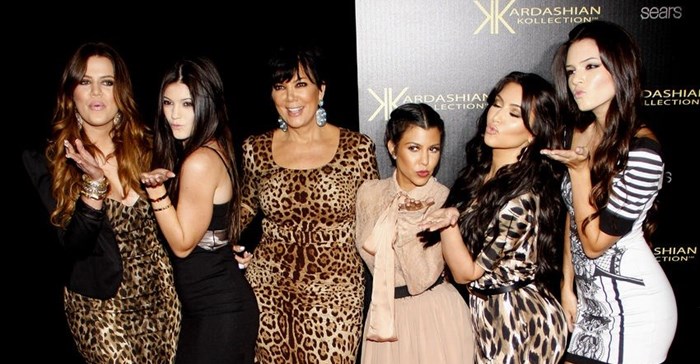"You don't sing, you don't dance, you don't have any talents," said Barbara Walters when she hosted the Kardashians on her show many moons ago. In his final press speech, Barack Obama also mentioned: "Kendall Jenner is here. I'm not exactly sure what she does."
According to a video by Vox, you and I are not the only ones that are perplexed by their fame, but they’ve built a business empire — with revenue coming in not just from their TV shows,but also fashion and makeup lines, mobile apps, games, and endorsements. Kim Kardashian's net worth is $85 million and she made $52.5 million just in the last year.
They’ve stretched fifteen minutes of fame into nearly a decade, and figured out how to monetise their every move.
How? Well, they understand something about marketing that most companies don’t. Advertising surrounds us... and we’ve become experts at tuning it out. As we become more and more hyper informed, we’re getting better and better at recognising intent and we immediately ignore it. That’s why the majority of advertising is really not successful.
The truth is, businesses and brands trying figure out how to make money online should take a lesson from the Kardashians. Most celebrity social media feeds are overtly promotional. They're full of corporate-looking ads and tweets clearly written by PR handlers. Compare that to Kim Kardashian’s feed… she whines about jet lag and asks her followers what TV shows to watch and whether to embarrass her husband or not.
This is as dynamic as marketing gets in 2016, creating that very close-to-perceived friendship, but it’s completely one-sided.
Communications scholars call this Parasocial Interaction. The researchers who coined the term in the mid-1950s used it to describe the feeling of friendship and closeness people felt with TV personalities they had never met. This actually happened to me a few years back when I walked into a lift that Gareth Cliff was in and I immediately put my hand out to greet him, forgetting that he does not know me at all, but he was cool and we had a good chuckle about it.
It's almost like when you're at a concert and somebody is singing and that person is looking into the audience and you feel like they're looking at you, and they're singing at you, especially when you’re a teenage girl and Justin Bieber is on stage :)
A reality show like Keeping Up with the Kardashians is fertile ground for the beginning of a Parasocial relationship, and Kim and her sisters nurture it by speaking to their fans on social media like they’re friends.
"Hey guys, it's been so long!"
"How pretty are those?"
"Ooh! Ooh!"
And it probably doesn’t hurt that this includes a fair amount of nudity.
So, when Kim and her sisters hawk products, it doesn’t feel like an advertisement.
"I'm obsessed with the app JetSmarter."
It feels like a recommendation from a friend. A richer, better-looking friend who’s getting paid thousands of dollars to tweet about swimsuits and teeth whitening.
The Kardashians use every digital tool imaginable to make millions of people feel like they know them, and make millions of dollars for themselves in the process.
And you don’t have to approve of them or even like them to acknowledge that’s a talent.
The Kardashians are without a doubt the queens of the Parasocial relationship in our modern era.
"Parasocial interaction (PSI), as originally hypothesised by Horton and Wohl (1956), offers an explanation of the ways in which audience members develop their one-sided relationships with the media being consumed.”
Source: Vox and my own brain :)
*Note that Bizcommunity staff and management do not necessarily share the views of its contributors - the opinions and statements expressed herein are solely those of the author.*








































